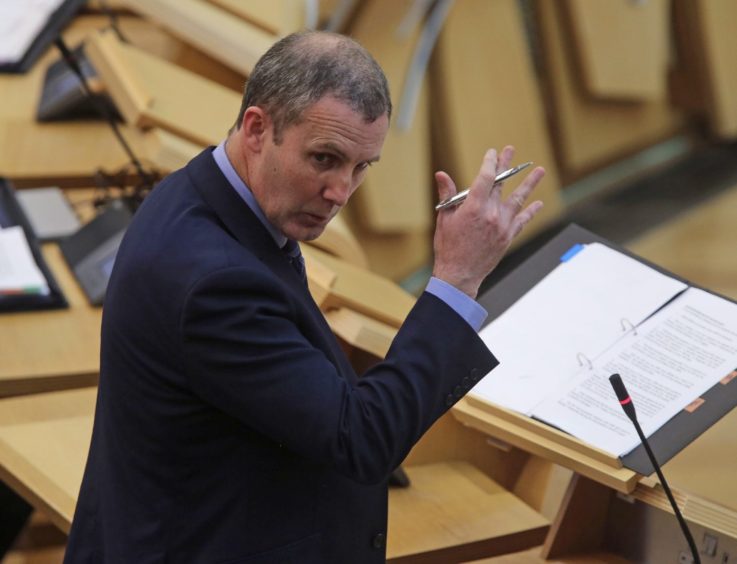
Scotland’s energy secretary says he is “not against the idea entirely of some kind of windfall tax” on North Sea oil and gas producers.
Michael Matheson revealed he is open to proposals put forward by Labour to help ease the cost of living crisis, despite SNP MPs failing to vote for it in the Commons.
But he told BBC Scotland’s The Sunday Show that any scheme of this kind would need to be delivered in a “fair and reasonable way”.
First Minister Nicola Sturgeon said last week she is not against the idea to institute a one-off windfall tax but added the resolution must be “fair and equitable”.
It is the UK Government which has the powers to introduce a windfall tax but
Chancellor Rishi Sunak has so far rejected such a move.
Scottish Labour leader Anas Sarwar accused the SNP of “sitting on their hands”, by not voting for the proposal at Westminster.
He said: “The SNP has refused to back Labour’s windfall tax on energy companies – but now Michael Matheson claims he is open to the idea.
“It’s high time that this SNP government stopped commenting on the cost-of-living crisis and started acting. They can use the powers of the Scottish Parliament to increase winter fuel payments, but refuse. Instead, they have made the cost-of-living crisis worse by increasing rail and water charges.”
Aberdeen South MP Stephen Flynn told MPs last week that “investment in the North Sea oil and gas sector plummeted” the last time a windfall tax was implemented.
The MP, who is also the business spokesman, said: “If that happens again, what does it mean? It means my constituents will lost their jobs.”
Mr Sunak has said such a levy would “deter investment” in the sector.
Oil and gas giants BP and Shell are on course to make a combined profit of almost £40 billion this year from the rocketing price of petrol and gas.
Mr Matheson warned there is a “real risk that lives will be lost this year”, as a direct result of the cost of living crisis and rising energy bills.
The energy secretary said Westminster has the “main levers to actually tackle this issue” as he branded the support on offer from the UK Government “wholly inadequate”.
He added that estimates show the number of households living in fuel poverty will rise by more than 200,000 as a result of rising energy prices.
This will mean more than 900,000 homes across Scotland either in fuel poverty or in extreme fuel poverty.
UK Energy Secretary Greg Hands told the BBC there is “already a lot being done” to support households with rising
fuel bills.
He added: “On top of that, we’ve got winter fuel payments, a warm homes discount, cold weather payments, household support fund, there is already a lot going in from the UK Government.
“We totally recognise the difficulties that many households will be facing with a rise in prices. The UK is not immune from the rise in worldwide energy prices but we actually are doing a lot make to sure that households are in a better position.”
Recommended for you
